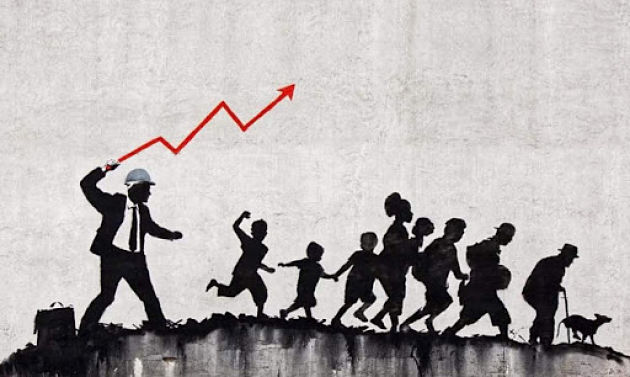The collapse of the world markets in general and Russian securities and the ruble in particular is not the beginning of the new year 2020, but its rapid continuation. It began with the escalation of military-political conflicts in the Middle East (the US-Iranian confrontation in Iraq and the Turkish-Russian confrontation in Syria) and, of course, with the coronavirus pandemic that broke out in China, which will lead to systemic shifts in the global economy and probably in politics as well.
The shifts in the global economy are understandable — its main assembly plant has been dealt a blow. Although China has been able to control this process and begin a localized recovery of production as a result of stringent measures, the consequences of the shutdown, as well as these measures (many of which are ongoing), and most importantly the bias that has formed against everything Chinese as toxic in every sense, are such that many analysts predict serious social problems for China itself that will undermine its growth potential.
The social consequences of this pandemic are no less dramatic. 800 million(!) people have been placed under strict quarantine in China, and 15 million have been placed under quarantine in the heart of Europe, in relaxed Italy, accustomed to the dolce vita (sweet life). Other countries are also beginning to take drastic measures to avoid being caught up in the pandemic.
Saudi Arabia has canceled Umrah, and if this trend continues, the Hajj may also be canceled this year. Collective religious practices are severely restricted in many Muslim countries — Friday prayers and public prayers in general have been canceled or greatly reduced in time, iftars and meals in mosques are banned, it is recommended not to greet each other with a handshake, and so on. Iran, where such measures have not been taken and where the pandemic has particularly affected Shiite religious centers, which have become hotbeds of this contagion in the region, has become a vivid example of how not to behave for Muslims and rational people in general.
The collapse of markets and currencies against this backdrop is something that does not come at the right time for ordinary people, especially those who are preparing for such quarantines by stocking up on food, medicine, and other necessities that require funds. They were already scarce in many countries due to the prolonged recession, and with the currency and securities collapse that has begun, which may cause companies to close or cut expenses by eliminating jobs, many may lose their sources of income.
The 2020s are beginning to resemble the 1920s of the 20th century, with its great economic depression, which intensified social and political antagonisms both within most countries and between them. We must not forget the «Spanish flu» epidemic that preceded it, which affected almost 30% of the world’s population (about 550 million people) and killed 3-5% (50-100 million). Of course, today humanity is much better organized, equipped and informed, which allows us to hope that the coronavirus will not reach such proportions, but due to this greater development, it is also more sensitive to losses, including the impact of panic on market fluctuations and economic development.
After all, the crisis of the 1920s ended with the establishment of totalitarian regimes, either communist or fascist in nature, and the conflicts between them and their desire to redraw the spheres of influence and borders that had formed before this crisis eventually led to the Second World War.
Will humanity be able to avoid it this time? Only Allah Almighty knows. But it is very likely that difficult times with extremely high risks are approaching.

